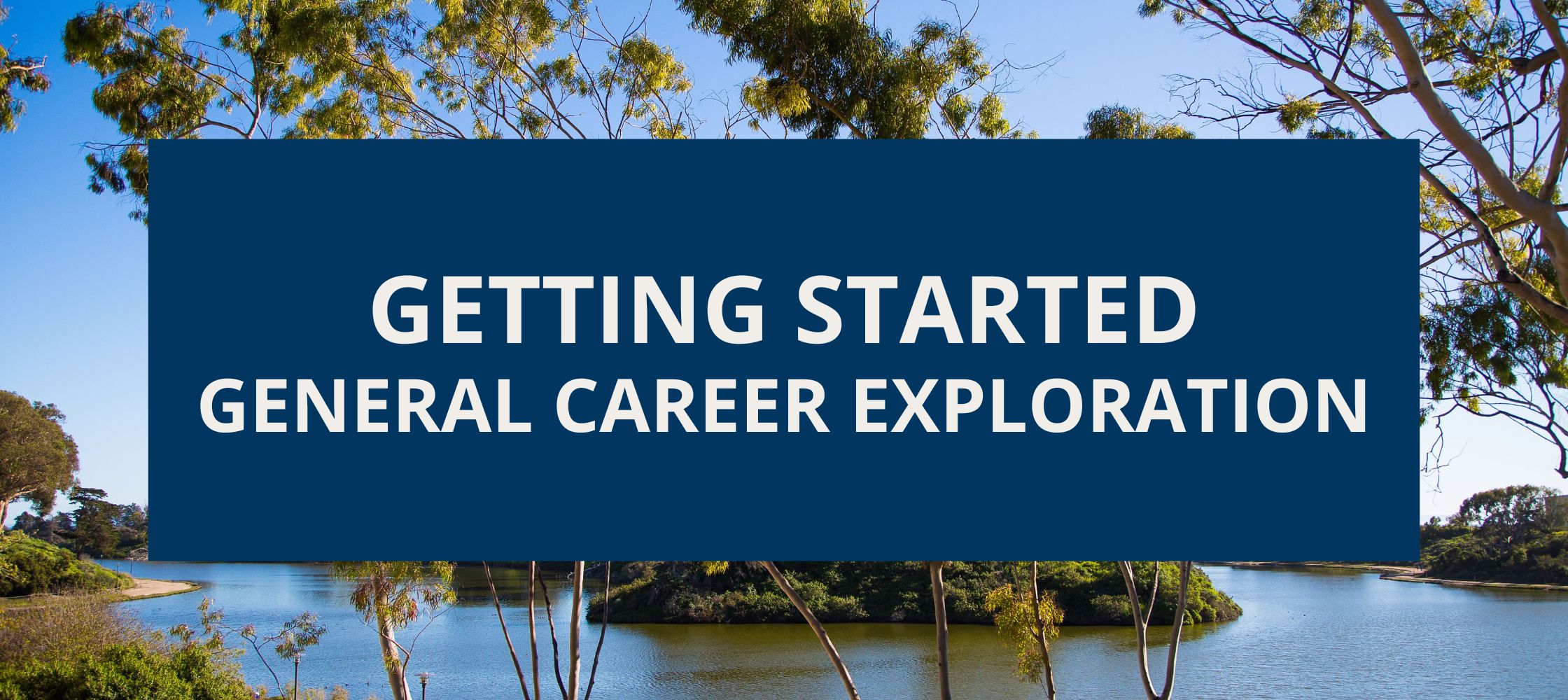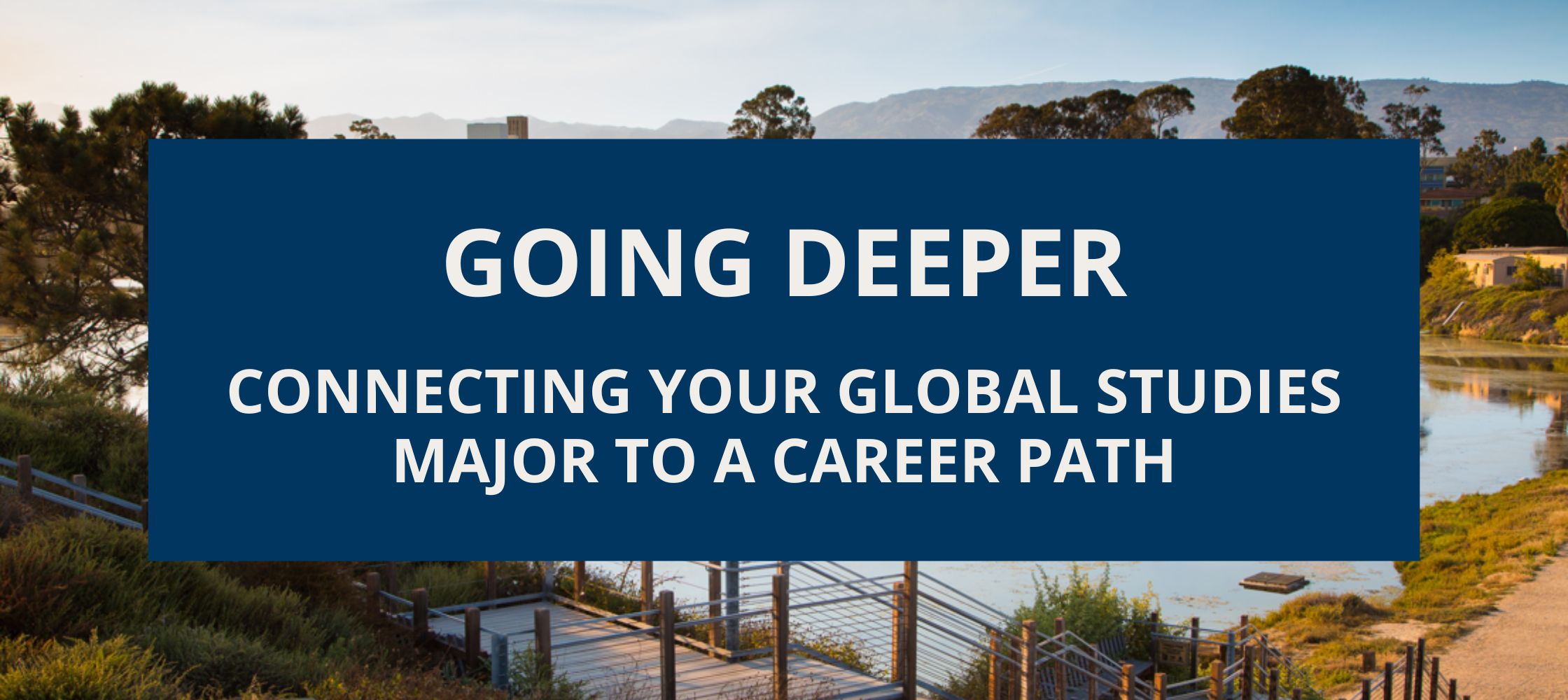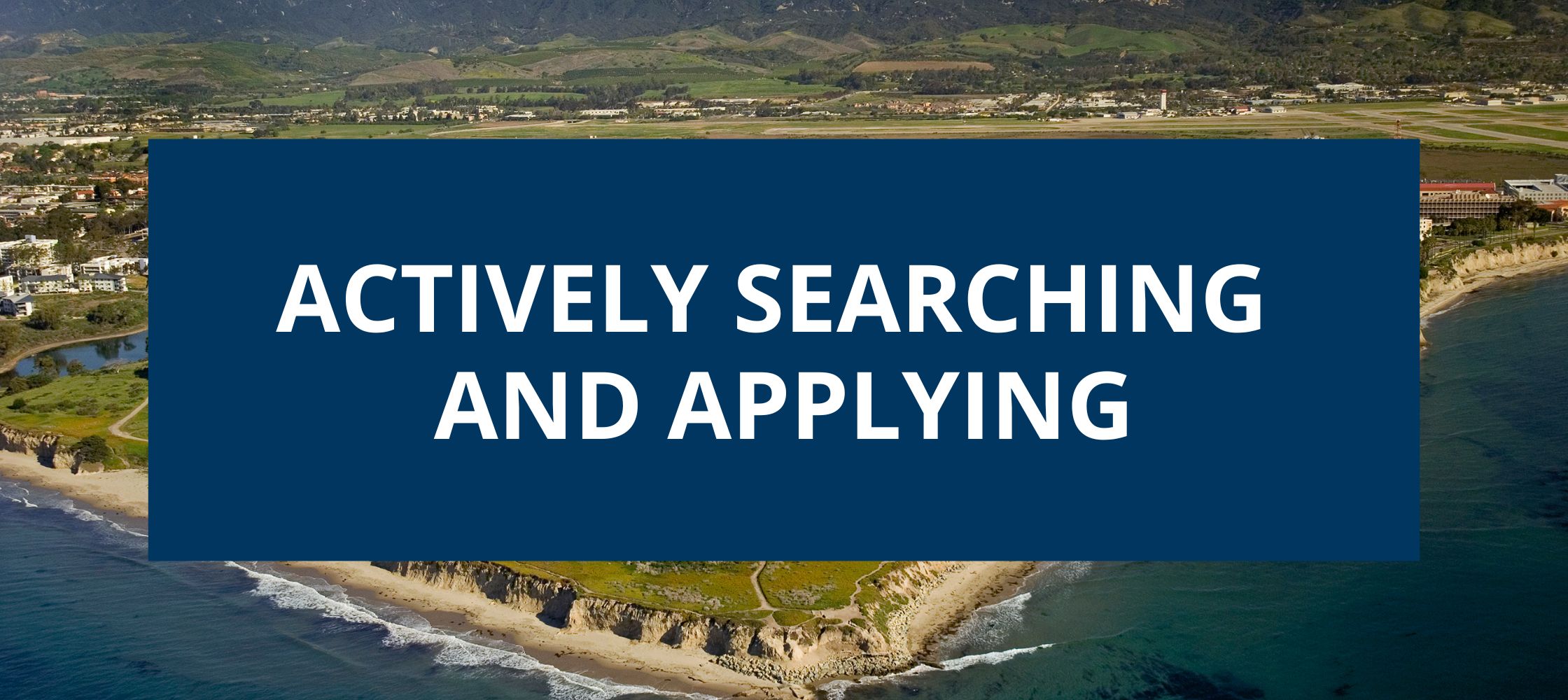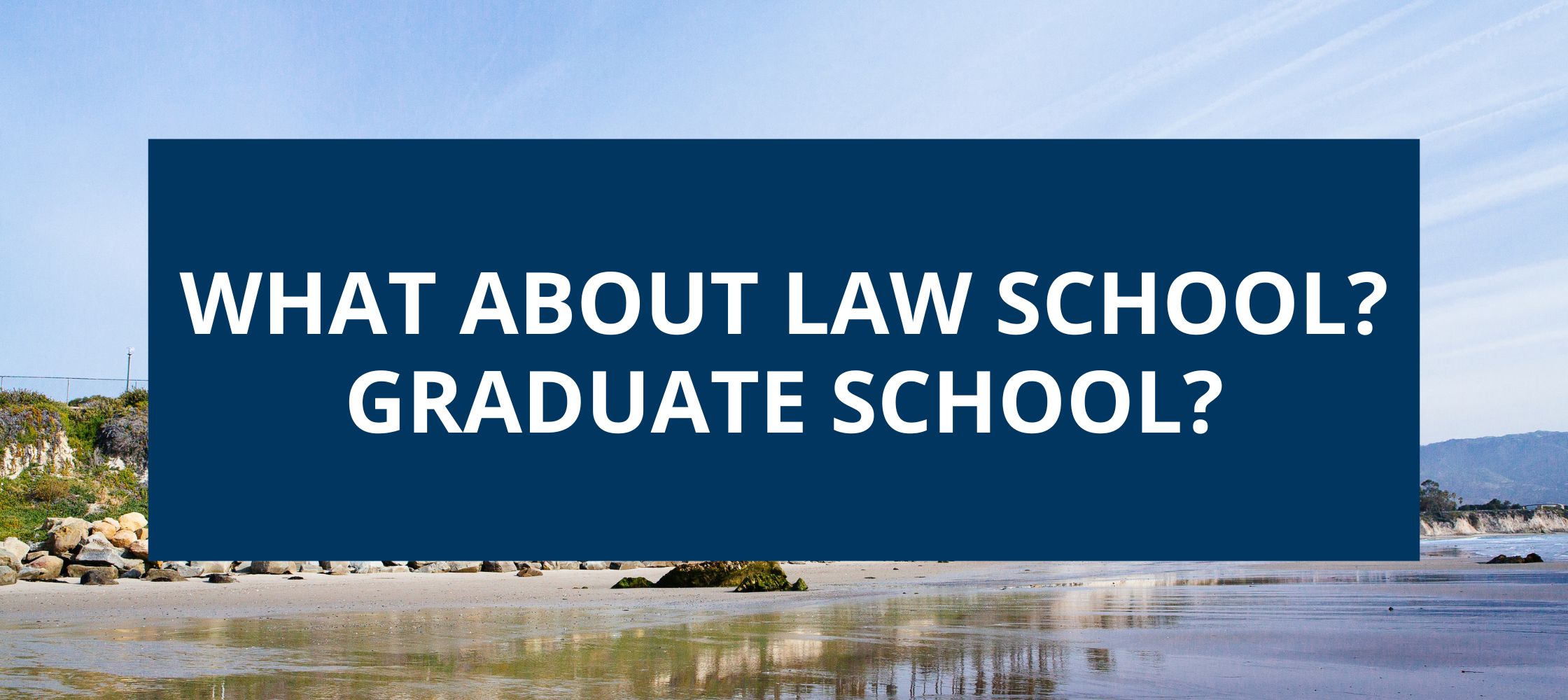Searching for a job, an internship, a whole career path, and everything in between can be stressful, and it will most often take longer than you think it will. If you’re just starting out, and especially if you don’t have a lot of experience in the working world yet, know that it will feel like a very weird time likely marked by self-doubt. If you’re a current student, you can start laying the groundwork for discovering your interests, skill areas, and career preferences now so that you’re in a good place to start searching later.
One big thing to keep in mind before we get started with some resources: Your first job search out of college is likely to be one of many job searches you perform in the future, so don’t put extra pressure on yourself this round to land the “perfect” job. Start in a job that works well enough for you (enough $$ to live, a good learning environment, a place to make connections) and if you love it, great! If not, use it as the stepping-stone to your next job (and your next job after that, and so on).

-
UCSB Career Services offers 1-on-1 advising, assessments to see what career fields might be a good fit for further exploration (and more!) They won't necessarily connect you with a job, but they can point you in the right direction in your searching and give a little more shape to your job or internship search
-
Here’s a sheet that a previous Global Studies advisor used to have available for students - lots of books and articles to get in the right mindset for discovering what to do with the major, etc.
- What Color is Your Parachute is the classic book for just helping you discover types of jobs and job environments that might be a good fit for who you are as a person - again, it won't magically bring a job or internship to you, but it will help you narrow your search down to positions that are good fits for you so that your searches will narrow down and, if you’re applying, your resume and cover letter have a better chance of landing you an interview.
-
Visit O*Net to explore jobs and career fields, whether you are familiar with them already or if they are new to you - you can search for specific job titles and the system will give you descriptions of that job, plus the education you need to complete to qualify for it, the skill sets it requires, etc. They also have some inventories you can take to figure out what skills you have that might be a good fit for particular job fields.
-
Visit the U.S. Bureau of Labor Statistics' Occupational Outlook Handbook - this page tracks trends in employment over time (which industries or jobs will grow the most in the coming years, etc)
-
Be open to gaining experience in a variety of ways, even through things you wouldn't expect to lead to a post-UCSB career path - consider the following:
-
Joining campus clubs and organizations and taking on leadership experiences within them
-
Pursuing an on or off campus job that may not be in the field that you're picturing as your "forever career"
-
Studying abroad - UCEAP has a number of programs with internship components. UC Davis also has a strong summer abroad program, including internships abroad (with some virtual options!)
-
Consider the Capital Internship Program and intern alongside coursework at the UC Center Sacramento and UCDC (a wide variety of internships are associated with these programs! Not just governmental agencies)
-
For an after-graduation option, consider the Capital Fellows Program, run through Sacramento State University, which has a lot of subprograms Global Studies majors will find interesting in different branches of state government (State Assembly Fellowship Program, Executive Fellowship Program, Judicial Fellowship Program). Most of these programs have a stipend involved!
-
-
Career advice from the advice blog Ask a Manager - Choosing a career path:
-
Career and major advice geared towards formerly-incarcerated students:
- Higher Education After Incarceration - a great list of resources for current students who experienced incarceration
- Career Planning for People with a Criminal Conviction

-
We had a Zoom panel event with some alumni from our undergraduate and graduate programs in May 2021 - see our highlights from the Global Studies Career Panel! They had some great tips on connecting your academic studies with career paths, and some great career search engine websites more specific to Global Studies interests
-
Take a peek at what UCSB alumni have been up to!
-
UCSB has a LinkedIn page where you can explore what alumni have done in their time since graduating from UCSB. You can search for people who completed specific majors, or just browse to see where Gaucho alumni now work (and see what their major was - it might surprise you!)
-
Play with the filters on this page to see what the median incomes and further education trends have been for students in different majors across the UC system
-
-
Visit this site to access a PDF of our official department program learning outcomes - these are lists of the skills that students in each major should have upon graduating. Maybe you can consider using these phrases in a future cover letter or job interview?
- See our main undergraduate page for some initial information regarding what career opportunities exist within the major.
- The UCSB Career Services Center has some more specific resources related to connecting your major to potential career paths (including a discussion of the idea that your major doesn’t matter nearly as much as you think when it comes to planning for a career.)
-
We have particularly enjoyed exploring the Global Studies section of the "What Can I Do With this Major?" tool on this page (it will prompt you to sign in to your Handshake account, or to create one if you don't already have one.)
-

-
Before you even need to get serious about applying for jobs, spend some time studying job postings on Indeed, LinkedIn, and (for student jobs, posted at UCSB) Handshake (upper right corner of the UCSB Career Services Center page). Even if you're not actively applying, you'll get to learn a lot about job descriptions and the education or experience levels they require, and you can get a sense of what companies or fields are hiring right now.
-
Scan through the Global Studies department undergraduate opportunities email list (you are added to this when you join the major) to search for recently-posted experiences (including internships, jobs, clubs, and other events) that might point you in the direction of your next career move.
-
The UCSB Career Services Center has lots of services for this "Get Hired" stage of the process - resume and cover letter tips and critiques and some interview prep tools
- Advice from Ask a Manager - Searching for and applying for jobs:
-
if you’re graduating soon, here’s how to kick off your job search + if you’re a recent grad, you’re probably making these mistakes in your job search
-
10 pieces of outdated career advice (from 2011, so possibly even more outdated by now!) + ignore your parents! they are forbidden from giving you advice (80% joking, 20% serious :) )
-
You found a job/internship! Now what? how new grads can impress at work
-

- Law school is a popular path with a lot of our majors - we recommend that you check out UCSB's Pre-Law advising program so that you can get a sense of whether it's the right path for your goals, along with help with your application materials.
- Some thoughts on graduate school:
- Visit Grad School 101 on the UCSB Career Services Center website for some initial exploration (things like - why go to graduate school? Is it a required next step after undergrad? what are good and less-good reasons to go? what are the different degree types and programs that are out there?)
- Thoughts on graduate school from Ask a Manager:
-
should you go to graduate school? + thinking about grad school? think again. Note: This is not intended to sway you away from graduate school, just a few things to think about to make sure that grad school is a good investment for your specific career path!
-
- Visit Grad School 101 on the UCSB Career Services Center website for some initial exploration (things like - why go to graduate school? Is it a required next step after undergrad? what are good and less-good reasons to go? what are the different degree types and programs that are out there?)
- In most cases, students considering graduate programs are either looking at academic graduate programs (PhD and some Masters programs) or professional graduate programs (some Masters programs and MBA programs). Also, students with a Global Studies BA degree are not limited to graduate programs labeled as "Global Studies" - you could look at any program that is in a related field (international relations, education, political science, sociology, history, etc.)
- Academic graduate programs are built on students doing a lot of research, so students considering this path should already be engaging in research with faculty members as undergraduates. (How to get involved? Start going to office hours for professors you click with, ask them if they are working on anything interesting and whether they are looking for student research assistants, look at the FRAP program listings, etc.)
- Professional programs are designed to prepare you for a specific job field, and it can be a good idea to build your undergrad resume with things that align with this job field (internships, etc).
- Make sure to read grad program details carefully so you can get a sense of which type of program meets the goals you are trying to reach!
- Visit the APSIA graduate school program matcher to get some ideas of what career fields and graduate degrees and specific graduate programs might be a good fit for your goals.
- Academic graduate programs are built on students doing a lot of research, so students considering this path should already be engaging in research with faculty members as undergraduates. (How to get involved? Start going to office hours for professors you click with, ask them if they are working on anything interesting and whether they are looking for student research assistants, look at the FRAP program listings, etc.)
- If you start looking at UCSB graduate programs (whether in the Department of Global Studies or another department on campus), take a look at Graduate Division's list of tips and recommendations for planning to apply to graduate school, too! This is a useful resource even if you're not going to end up attending a graduate program at UCSB, though.
- Letters of recommendation are a key part of many graduate school applications, and they can be really intimidating to request. Some tips:
- The type of program you're applying for, along with a careful read of the application instructions, can often give you clues as to who might be a good source of a recommendation for you.
- For academic programs (PhDs and many Masters programs), you'll want academic references (so, professors that directly oversaw your work in class and with whom you've had a strong number of positive interactions.) Sometimes TAs can be a good fit for this, too, especially if you connected with them well.
- Having trouble identifying professors that can write you a letter? If your application is due in the next couple of weeks and you have nobody in mind that you've connected with, you may not be a strong fit for the program you're applying to just yet and may want to hold off for a year so that you can lay the groundwork (attend office hours, take more courses with the professor(s) you respect or who work in the area(s) you want to study, etc.)
- Having trouble identifying professors that can write you a letter? If your application is due in the next couple of weeks and you have nobody in mind that you've connected with, you may not be a strong fit for the program you're applying to just yet and may want to hold off for a year so that you can lay the groundwork (attend office hours, take more courses with the professor(s) you respect or who work in the area(s) you want to study, etc.)
- For more professional programs, do you have a work supervisor in that field that would be able to speak well and specifically about your skills and qualifications? In these cases, a professor who doesn't know you well may not be as strong a recommender as someone who oversaw you in an internship or on-campus job.
- For academic programs (PhDs and many Masters programs), you'll want academic references (so, professors that directly oversaw your work in class and with whom you've had a strong number of positive interactions.) Sometimes TAs can be a good fit for this, too, especially if you connected with them well.
- Ask for recommendations as far out as you possibly can - professors are very busy people who may turn you down simply because they don't have enough lead time on the request.
- For more really useful recommendation letter tip from the UCSB Reddit page, take a look here!
- The type of program you're applying for, along with a careful read of the application instructions, can often give you clues as to who might be a good source of a recommendation for you.
Ask a Manager posts - Copyright © 2007 - 2020 Ask A Manager (www.askamanager.com). All rights reserved.


